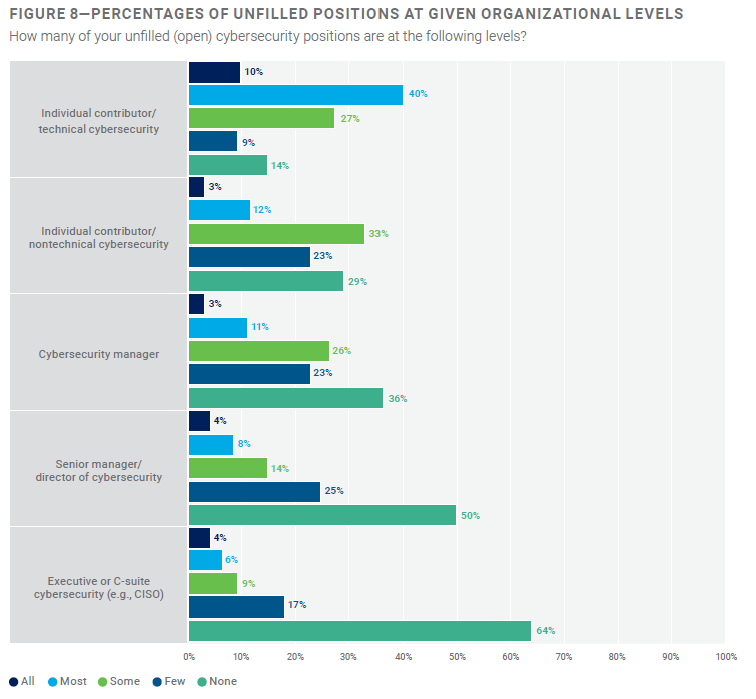In today's technologically advanced world, the rise of cybercrime has created an urgent need for skilled cyber security specialists. With the ever-growing concerns surrounding the impact of artificial intelligence on traditional career paths, many individuals are now turning to cyber security training and certifications to future-proof their professional journey.
This is particularly true for those in diverse fields such as Law, Public Policy, Operations Management, Communications, or Process Excellence, who wish to expand their skill set with cyber security expertise.
Additionally, individuals within the realm of information technology often consider cyber security as a specialised domain within their organisations. Moreover, many professionals are looking to pivot and explore the vast opportunities in the cyber security industry.
Are you based in NZ and are interested in pursuing a career in cyber security? We will guide you through the necessary steps to enter the world of cyber security. We also highlight available training and certification options.
The current cyber security requirement
In today's highly connected world, the increased vulnerability to cyber-attacks has become a pressing concern. However, this scenario also allows organisations to bolster their cyber security capabilities by cultivating specialists within their teams. Moreover, it offers individuals a promising avenue to forge a new career path or distinguish themselves by augmenting their existing skillsets.
ISACA's State of Cybersecurity 2022 report surveyed leaders globally and found that technical cybersecurity roles remain the top vacancy.
ISACA’s annual State of Cybersecurity 2021 survey found that in New Zealand:
66% of respondents say their cybersecurity teams are understaffed (compared to 55% globally).
59% have unfulfilled cybersecurity positions (versus 55% globally).
52% say their cybersecurity applicants are poorly qualified (versus 50% globally).
How to start your cyber security career
By following these key points, you can lay a strong foundation, gain practical experience, enhance your education and certifications, specialise in a specific area, and actively engage with the cyber security community. These steps will help you embark on a successful career in the ever-evolving field of cyber security.
Acquire a Strong Foundation:
To start your cyber security career, it is crucial to have a strong foundation in computer science, networking, and information technology. Familiarise yourself with programming languages like Python, understand network protocols, and grasp the basics of operating systems. This foundation will provide you with a solid understanding of the underlying technologies and concepts essential for cyber security.Gain Practical Experience:
Practical experience is invaluable in the cyber security field. Look for internships, entry-level positions, or volunteer opportunities that allow you to work with security tools, analyse vulnerabilities, or assist in incident response. This hands-on experience will help you apply your knowledge, develop problem-solving skills, and build a track record of practical achievements.Pursue Relevant Education and Certifications:
Consider pursuing formal education in cyber security, such as a degree program or specialised courses. These educational programs provide in-depth knowledge and expose you to advanced concepts and techniques. Additionally, obtaining industry-recognised certifications like CompTIA Security+, Certified Ethical Hacker (CEH), Certified Information Security Manager (CISM) or Certified Information Systems Security Professional (CISSP) can significantly boost your credibility and marketability as a cyber security professional.Stay Updated with Evolving Threat Landscape:
Cyber security is a rapidly evolving field, constantly emerging new threats and attack techniques. Stay updated with the latest trends, vulnerabilities, and security practices by following industry-leading blogs, subscribing to security newsletters, and participating in webinars or conferences. Continuous learning and staying abreast of evolving technologies and threats will ensure your skills remain relevant and effective.Develop Transferrable Skills:
In addition to technical expertise, it's essential to cultivate valuable transferable skills across various industries. Skills such as communication, problem-solving, critical thinking, and project management are highly sought after in cyber security roles. Enhance these skills through workshops, courses, or by taking up relevant projects. Transferrable skills make you a well-rounded professional and expand your career options beyond traditional cyber security roles.Network and Engage:
Building a professional network is crucial for career growth in cyber security. Attend industry conferences, local meetups, and workshops to connect with fellow professionals and experts. Join relevant professional organisations, online forums, and social media groups to engage in discussions, share knowledge, and stay updated on the latest industry trends. Networking provides valuable insights and opens doors to job opportunities and mentorship from experienced professionals.
Lumify Cyber Security Lead Jeremy Daly shares advice for those looking to start a career in cyber security:
By keeping yourself updated with the latest trends and continuously developing transferrable skills, you will be well-equipped to adapt to the evolving cyber security landscape and seize opportunities for professional growth and advancement. In addition to staying updated and developing transferrable skills, obtaining certifications in the cyber security field is critical.
Certifications validate your knowledge and expertise, providing tangible evidence of your capabilities to employers and clients. They demonstrate your commitment to professional development and adherence to industry best practices. By earning certifications, you enhance your credibility and increase your chances of securing rewarding opportunities for career growth and advancement in the ever-evolving cyber security landscape.
Get started with cyber security training
Lumify Work offers cyber security training for all levels - from frontline staff and individuals starting their journey in cyber security to experienced professionals looking to enhance their skills.
Introductory training programs provide frontline staff with knowledge of basic security practices, such as identifying phishing attempts, using strong passwords, and maintaining data privacy.
Those starting in cyber security can benefit from comprehensive courses covering foundational concepts, including network security, risk management, and incident response. These programs often include hands-on labs and simulations to develop practical skills.
For experienced professionals, advanced training options focus on specialised areas such as ethical hacking, penetration testing, digital forensics, or cloud security. These programs offer in-depth knowledge, advanced techniques, and practical scenarios to refine their expertise. With a wide range of training options available, individuals at every stage can acquire the necessary knowledge and skills to excel in the dynamic field of cyber security.
AWS Security Essentials
Learn about fundamental AWS cloud security concepts, including AWS access control, data encryption methods, and how network access to your organisation's AWS infrastructure can be secured.
CompTIA Security+
CompTIA Security+ is a global certification that validates the baseline skills necessary to improve baseline security readiness and incident response by applying current best practices for preventing and addressing today’s threats.
ISC2 Certified in Cybersecurity (CC) - 1-Day Workshop
Prove to employers that you have the foundational knowledge, skills and abilities necessary for an entry- or junior-level cybersecurity role. It will signal your understanding of fundamental security best practices, policies and procedures and your willingness and ability to learn more and grow on the job.
Lumify Learn Certified Cyber Security Professional (CCP)
This 6-month course prepares students for a career in cyber security. Learn the skills to troubleshoot, configure, and manage common wired and wireless networks while at the same time improving baseline security readiness and incident response by applying current best practices for preventing and addressing today’s threats.
Access our brochure on available cyber security certifications in New Zealand. You can also contact our team to enquire about cyber security courses or see our complete range.









